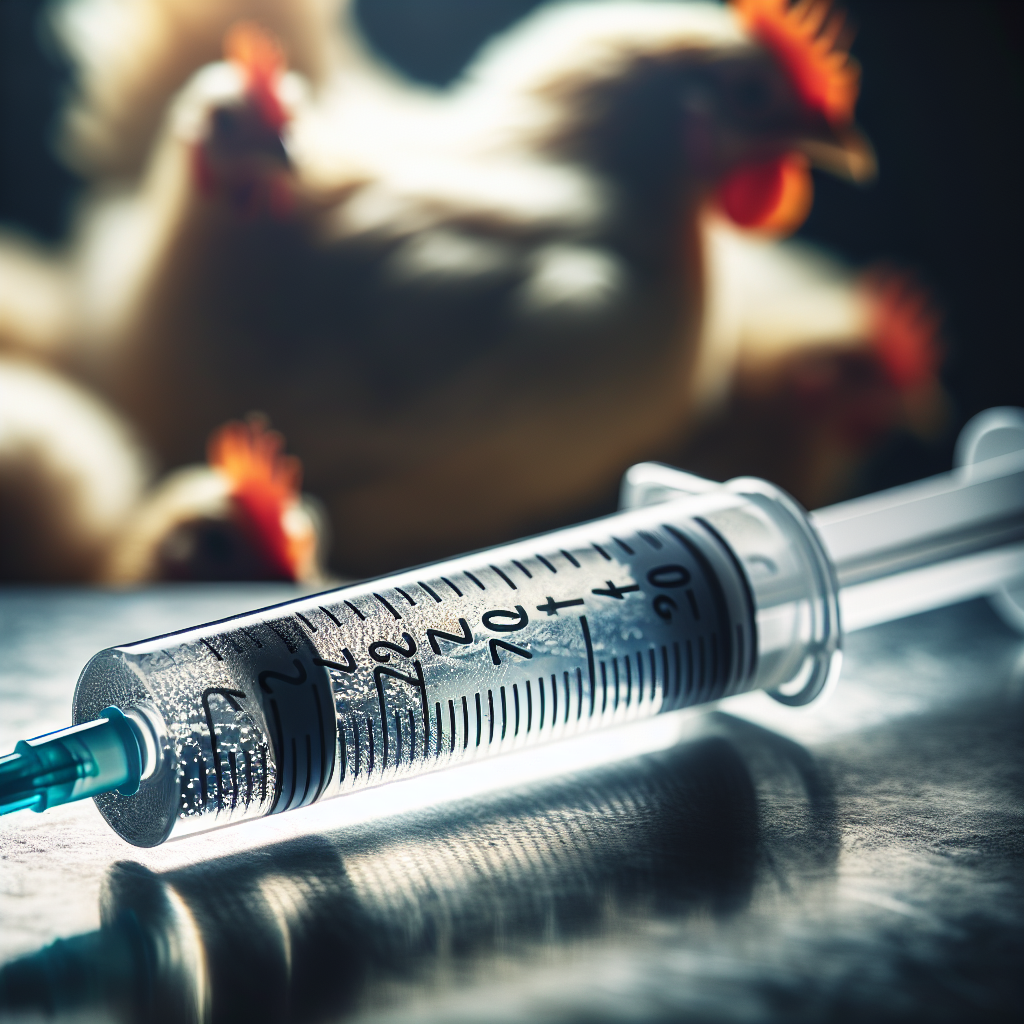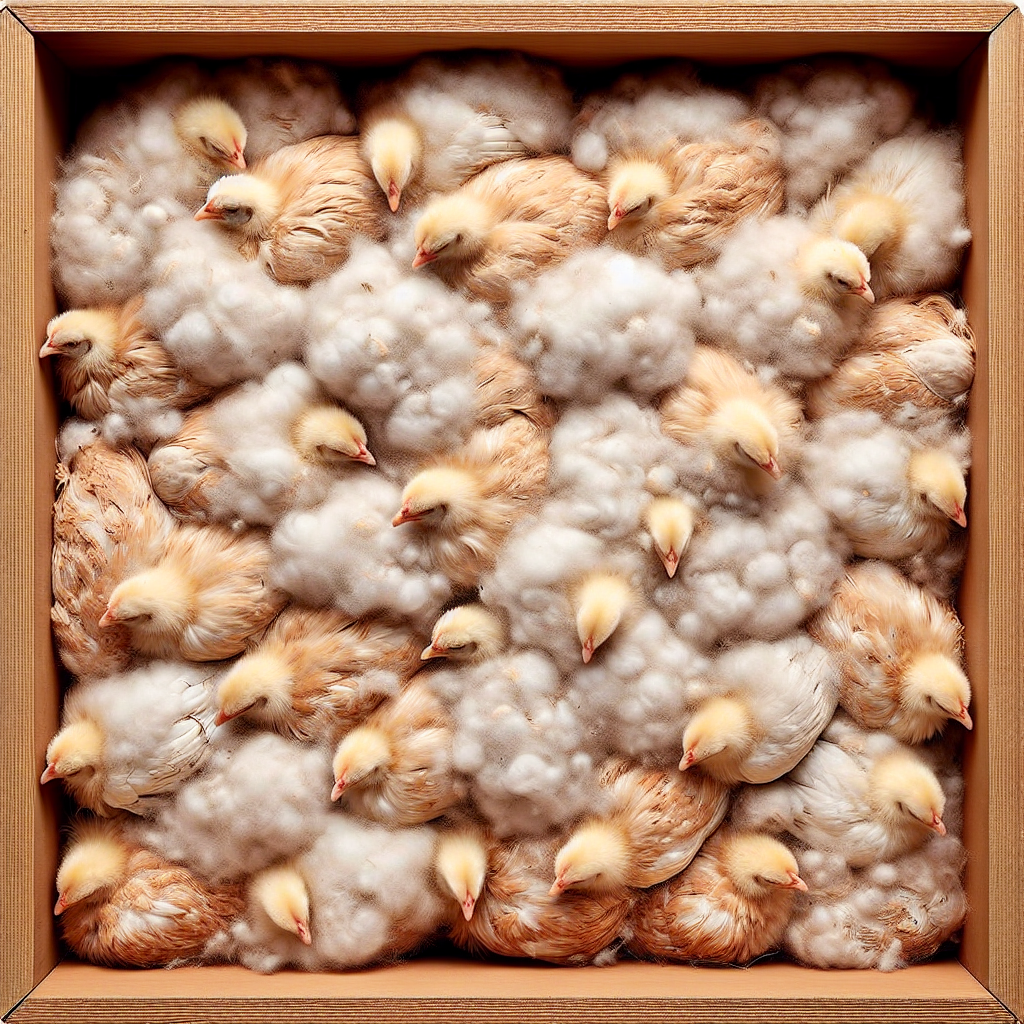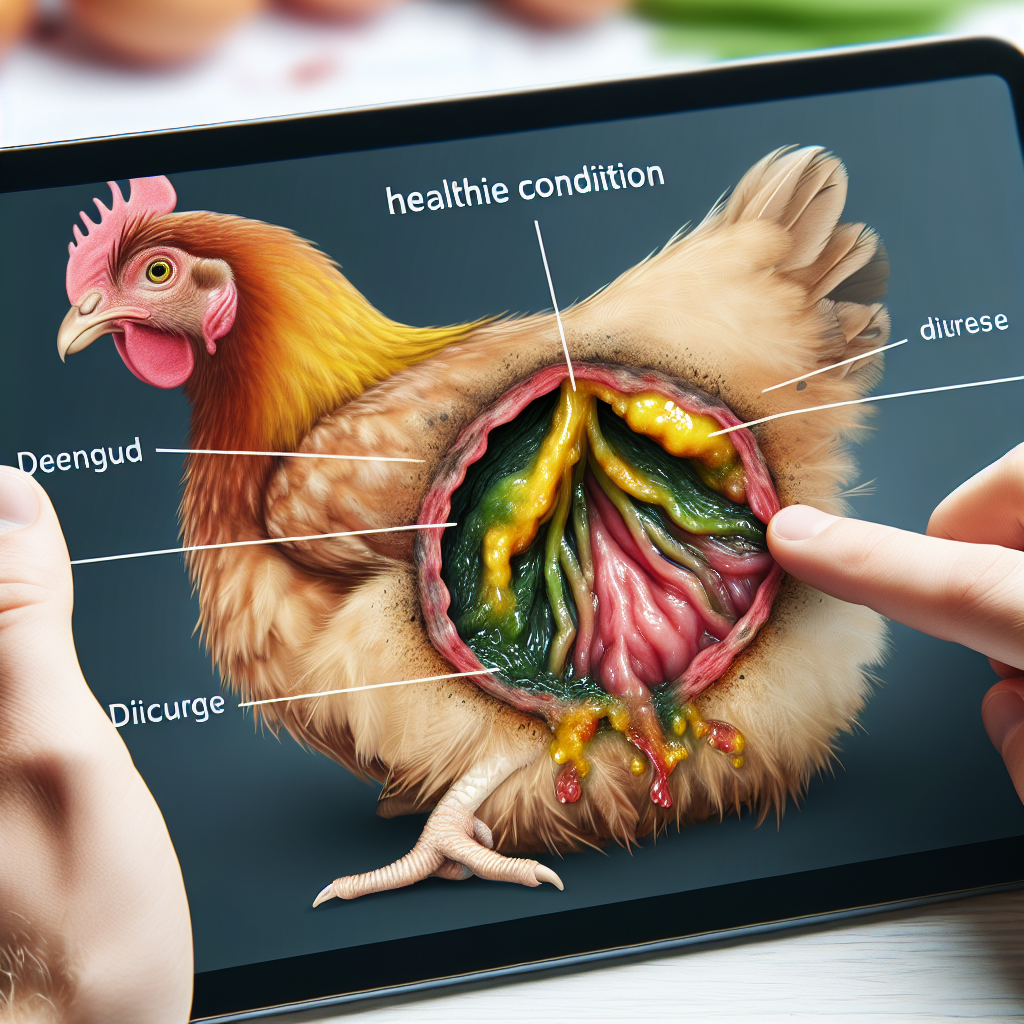You always want to ensure the health and well-being of your chickens, but when it comes to preventing the spread of diseases, it becomes even more vital. With a few essential precautions in place, you can safeguard your flock from potential health risks. From practicing biosecurity measures to maintaining proper hygiene, this article will guide you through the necessary steps to keep your chickens healthy and disease-free.
Vaccination
Vaccination is a crucial aspect of preventing the spread of diseases among chickens. By vaccinating your flock against common diseases, you not only protect the individual birds but also reduce the risk of disease transmission within the entire group. Following recommended vaccination schedules is essential to ensure adequate immune protection for your chickens.
Vaccinate against common diseases
There are several common diseases that can pose a significant threat to the health of your flock. Diseases such as Newcastle disease, infectious bronchitis, and avian influenza can spread rapidly among chickens, leading to severe illness and even death. It is essential to consult with a veterinarian or poultry health professional to determine the appropriate vaccines for your specific region and farming practices. By vaccinating your chickens against these common diseases, you can significantly reduce the risk of outbreaks and protect your flock’s health.
Follow recommended vaccination schedules
Vaccines are most effective when administered at the appropriate time and in the recommended dosage. It is crucial to follow the vaccination schedules provided by experts in poultry health. These schedules take into consideration factors such as the age of the birds, regional disease prevalence, and the specific vaccine’s duration of protection. By adhering to these schedules, you can ensure that your flock receives the necessary protection and minimize the risk of disease transmission.
Biosecurity Measures
Implementing biosecurity measures is essential to prevent the introduction and spread of diseases in your chicken farm. By controlling access to the farm, implementing strict hygiene practices, quarantining new birds, and monitoring and controlling pests and wildlife, you can significantly reduce the risk of disease transmission.
Control access to the chicken farm
Controlling access to your chicken farm is crucial to prevent the entry of potential disease carriers. Limiting access to authorized personnel and visitors helps minimize the risk of introducing diseases from external sources. Implementing visual identification systems such as badges or entry permits can help ensure that only authorized individuals enter the farm premises.
Implement strict hygiene practices
Maintaining high levels of hygiene is essential to prevent the spread of diseases among chickens. This includes practices such as regular handwashing, disinfection of equipment, and proper waste management. Providing and enforcing hygiene protocols for all staff members will help minimize the risk of disease transmission within the farm.
Quarantine new birds
When introducing new birds to your flock, it is crucial to quarantine them before allowing them to interact with the existing flock. Quarantine periods should be long enough to allow for observation and testing to identify any potential health issues. This practice helps prevent the introduction of diseases and protects the overall health of your chickens.
Monitor and control pests and wildlife
Pests and wildlife can serve as disease carriers and introduce pathogens to your chicken farm. Implementing effective pest control measures and taking steps to deter wildlife from the farm can significantly reduce the risk of disease transmission. Regular monitoring and timely intervention are essential to keep these potential sources of infection in check.
Nutrition and Health
Proper nutrition and health management play a crucial role in preventing the spread of diseases among chickens. By providing a balanced diet, clean and fresh water, maintaining proper ventilation, and ensuring appropriate temperature conditions, you can enhance the immune system and overall health of your flock.
Provide a balanced diet
Adequate nutrition is vital for maintaining strong immune systems in chickens. Ensure that your flock receives a balanced diet that meets their specific nutritional requirements. Consult with a poultry nutritionist or veterinarian to formulate appropriate feed rations that include essential nutrients such as proteins, carbohydrates, fats, vitamins, and minerals. A well-balanced diet helps boost the immune system and improves the flock’s resistance to diseases.
Ensure clean and fresh water
Access to clean and fresh water is crucial for the overall health and well-being of your chickens. Regularly check and clean water sources to prevent the growth of harmful bacteria and the spread of diseases. Chickens should have continuous access to clean water, and waterers should be regularly cleaned and sanitized to avoid potential contamination.
Maintain proper ventilation
Proper ventilation is crucial for maintaining optimal air quality within the chicken house. Good ventilation helps remove excess moisture, ammonia, and airborne pathogens, reducing the risk of diseases. Ensure that the chicken house is adequately ventilated, and ventilation systems are well-maintained to provide a comfortable and healthy environment for your flock.
Maintain appropriate temperature
Temperature control is essential for the health and welfare of your chickens. Extreme temperatures can weaken their immune systems and make them more susceptible to diseases. Maintain appropriate temperature levels within the chicken house, ensuring that the birds are neither too cold nor too hot. Regularly monitor and adjust temperature settings based on the specific needs of your flock and prevailing weather conditions.
Regularly check for signs of disease or illness
Regular monitoring of your flock for signs of disease or illness is critical in preventing the spread of diseases. Monitor bird behavior, appearance, and overall health on a daily basis. Look for symptoms such as decreased activity, changes in appetite, respiratory distress, feather abnormalities, or unusual feces. Early detection of potential health issues allows for prompt intervention and containment to prevent the spread of diseases.
Sanitation Practices
Maintaining proper sanitation practices in your chicken farm is essential to prevent the spread of diseases. By cleaning and disinfecting equipment regularly, removing and properly disposing of manure, maintaining clean and dry living areas, and controlling and preventing parasites, you can create a healthy environment for your flock.
Clean and disinfect equipment regularly
Regular cleaning and disinfection of equipment used in the chicken farm are critical to prevent the buildup and spread of pathogens. Equipment such as feeders, waterers, and egg trays should be cleaned and disinfected on a regular basis. Use appropriate disinfectants recommended for poultry farming, and follow proper cleaning procedures to ensure effective sanitization.
Remove and properly dispose of manure
Proper management of manure is crucial to prevent the spread of diseases. Regularly remove manure from the chicken house and ensure proper disposal. Manure should be stored in designated areas away from the farm premises and properly treated to prevent contamination of the environment.
Maintain clean and dry living areas
Clean and dry living areas are essential for promoting the health of your flock. Regularly clean the chicken house, including surfaces, nest boxes, and perches, to remove dirt, dust, and potential disease-causing agents. Ensure proper drainage and ventilation to prevent the buildup of moisture, which can lead to the growth of harmful bacteria.
Control and prevent parasites
Parasites such as mites, lice, and worms can cause significant health issues in chickens. Implement effective parasite control measures, such as regular treatment with appropriate medications and proper biosecurity practices. Regularly inspect birds for signs of infestation and consult with a veterinarian for the appropriate treatment protocols.
Proper Handling and Transport
Proper handling and transport practices are essential to minimize stress and ensure the health and well-being of your chickens. By handling birds with care, using clean and disinfected transport containers, and ensuring appropriate conditions during transportation, you can prevent the spread of diseases and maintain the overall health of your flock.
Handle birds with care and minimize stress
Gentle handling of chickens is crucial to minimize stress and the risk of injuries. Stress can weaken the immune system and make birds more susceptible to diseases. Avoid rough handling, unnecessary agitation, and overcrowding during routine farm activities. By providing a calm and stress-free environment for your chickens, you can reduce the risk of disease transmission.
Use clean and disinfected transport containers
When transporting chickens, it is vital to use clean and disinfected containers to prevent the spread of diseases. Regularly clean and disinfect transport crates or boxes before and after use. Ensure that the containers are properly sealed and well-ventilated to provide a safe and comfortable journey for the birds.
Ensure appropriate conditions during transportation
During transportation, it is crucial to maintain appropriate conditions to minimize stress and ensure the well-being of your chickens. Avoid exposing birds to extreme temperatures, excessive vibration, or prolonged periods without access to water and food. Proper planning and preparation for transportation, including suitable timing and route selection, help minimize the risk of disease transmission and maintain the health of your flock.
Record Keeping
Maintaining up-to-date records of vaccinations, treatments, and health issues is essential for effective disease prevention and management. By keeping track of your flock’s vaccination status, any disease outbreaks, and unusual symptoms, you can identify patterns and take necessary measures to control and prevent the spread of diseases.
Maintain up-to-date records of vaccinations, treatments, and health issues
It is essential to maintain accurate and up-to-date records of all vaccinations administered to your flock. Keep a log of the vaccine type, date of administration, dosage, and any adverse reactions observed. Additionally, maintain records of any treatments given to individual birds and the specific health issues addressed. These records serve as a valuable reference for ongoing disease prevention and management.
Keep track of any disease outbreaks or unusual symptoms
In the event of a disease outbreak or the emergence of unusual symptoms, it is crucial to record and document the details. Note down the date of the outbreak, affected birds, observed symptoms, and any actions taken to control and manage the situation. These records help identify potential patterns or recurring issues, enabling timely intervention and preventing further outbreaks.
Education and Training
Education and training play a vital role in preventing the spread of diseases among chickens. By educating poultry farmers and workers on disease prevention and training them on proper handling and care of chickens, you can empower them to take proactive measures to protect the health of your flock.
Educate poultry farmers and workers on disease prevention
Providing education on disease prevention is essential to equip poultry farmers and workers with the knowledge and skills necessary to tackle potential health challenges. Educate them about common poultry diseases, their modes of transmission, and preventive measures. Encourage the adoption of good biosecurity practices, proper sanitation, and hygiene protocols as a standard part of their daily routine.
Train them on proper handling and care of chickens
Proper handling and care of chickens are critical in ensuring their health and preventing the spread of diseases. Conduct training sessions to educate poultry farmers and workers on best practices for handling chickens, such as correct lifting techniques and minimizing stress during routine activities. Train them on appropriate feeding practices, monitoring bird behavior, and recognizing early signs of illness. By providing comprehensive training, you empower your team to proactively protect the health and well-being of your flock.
Regular Monitoring and Testing
Regular monitoring and testing are essential components of disease prevention and early detection. By routinely monitoring bird behavior and overall health, performing testing for common diseases, and implementing disease surveillance programs, you can identify and address potential health issues before they escalate.
Regularly monitor bird behavior and overall health
Regular observation and monitoring of your flock are critical in identifying any changes in behavior or health. Schedule regular checks of bird behavior, including eating, drinking, and activity levels. Monitor for any signs of distress, respiratory issues, abnormal discharge, or changes in plumage. Immediate action can be taken if any unusual patterns or symptoms are detected.
Perform routine testing for common diseases
Routine testing for common diseases can help detect infections at an early stage and enable timely intervention. Consult with a veterinarian or poultry health professional to determine the appropriate testing protocols for your specific region and flock. Common tests include blood tests, swabs, and fecal analysis. Incorporate these tests into your regular disease surveillance program to ensure the ongoing health of your flock.
Implement disease surveillance programs
Implementing disease surveillance programs is essential in monitoring the overall health status of your flock. Work with a veterinarian or poultry health professional to develop a comprehensive surveillance program tailored to your specific needs. Regularly collect and analyze data on disease occurrence, track vaccination effectiveness, and identify potential risk factors. These programs allow for proactive measures to be taken and help prevent the spread of diseases.
Isolation and Separation
Implementing isolation and separation measures within your chicken farm is crucial to prevent the spread of diseases. By isolating sick birds, separating different age groups, and avoiding mixing chickens from different sources, you can reduce the risk of disease transmission and protect the health of your flock.
Isolate sick birds from the rest of the flock
When a bird shows signs of illness or disease, it is essential to isolate it immediately from the rest of the flock. This helps prevent the spread of the pathogen to healthy birds. Place the sick bird in a separate area with suitable housing and provide appropriate veterinary attention. Only allow the bird to reintegrate with the flock once it has fully recovered and received clearance from a veterinarian.
Separate different age groups of chickens
Separating chickens based on their age is necessary to minimize the risk of disease transmission. Younger birds are more susceptible to certain diseases and may need more time to develop immunity. Keep different age groups isolated from each other, ensuring separate areas, feeders, and water sources. Implement strict biosecurity measures when handling different age groups to prevent potential cross-contamination.
Avoid mixing chickens from different sources
Mixing chickens from different sources increases the risk of introducing diseases to your flock. When introducing new birds, it is critical to quarantine them and monitor their health status before allowing them to interact with the existing flock. Avoid purchasing birds from unknown or unreliable sources. Maintaining a closed flock or working with trusted suppliers can significantly reduce the risk of disease transmission.
Risk Assessment and Management
Conducting risk assessments and implementing appropriate risk management strategies are crucial to minimize the potential for disease outbreaks. By identifying potential risks and vulnerabilities and implementing relevant strategies, you can effectively prevent and manage diseases among your chickens.
Identify potential risks and vulnerabilities
Thoroughly assess your poultry farm to identify potential risks and vulnerabilities. Consider factors such as geographical location, climate, local disease prevalence, biosecurity practices, and the health status of neighboring flocks. Identify potential sources of disease introduction, such as wildlife, pests, or contaminated equipment. Understanding the specific risks allows for targeted prevention and management strategies.
Implement strategies to mitigate and manage risks
Once potential risks have been identified, implement strategies to mitigate and manage them effectively. This may include strengthening biosecurity measures, enhancing sanitation practices, prioritizing vaccination programs, and establishing emergency response plans. Regularly review and update risk management strategies to ensure their effectiveness and adaptability to changing circumstances. Taking a proactive approach to risk management significantly reduces the likelihood of disease outbreaks and protects the health of your flock.
In conclusion, preventing the spread of diseases among chickens requires a comprehensive approach that encompasses vaccination, biosecurity measures, nutrition and health management, sanitation practices, proper handling and transport, record-keeping, education and training, regular monitoring and testing, isolation and separation, as well as risk assessment and management. By implementing these measures, poultry farmers can minimize the risk of disease transmission, protect their flocks’ health, and ensure the long-term sustainability of their operations.




